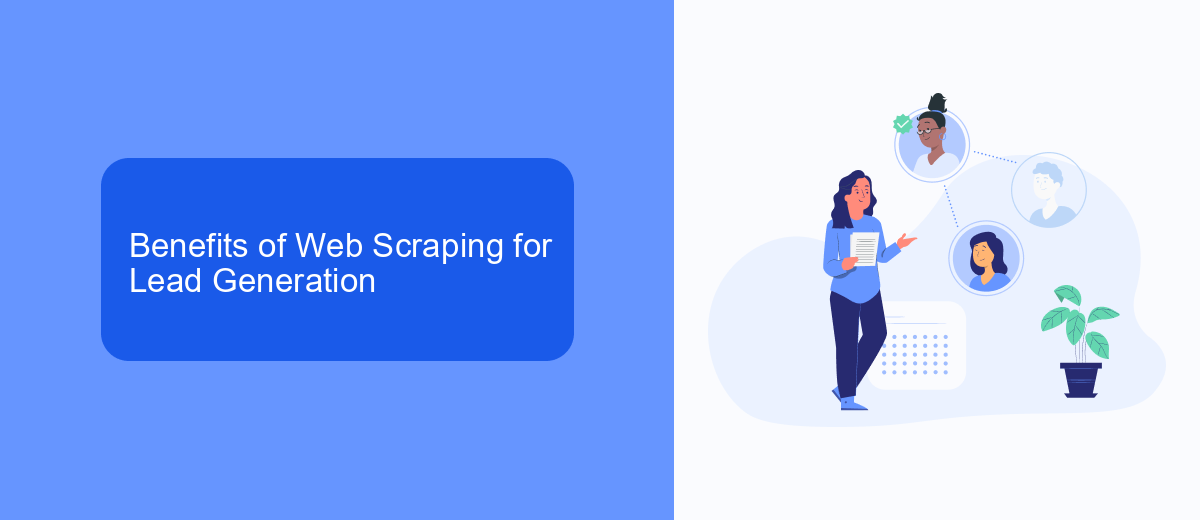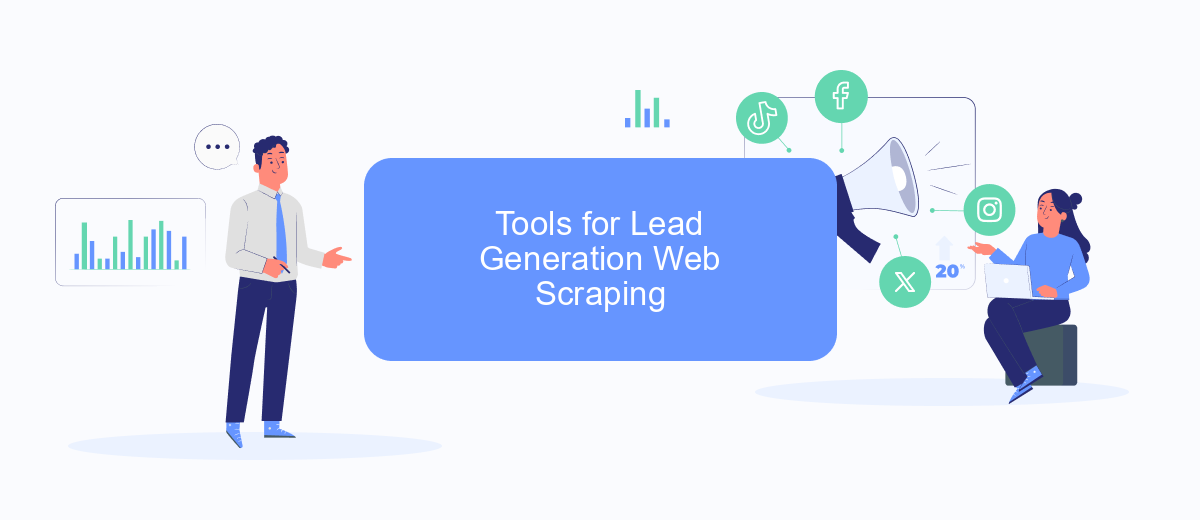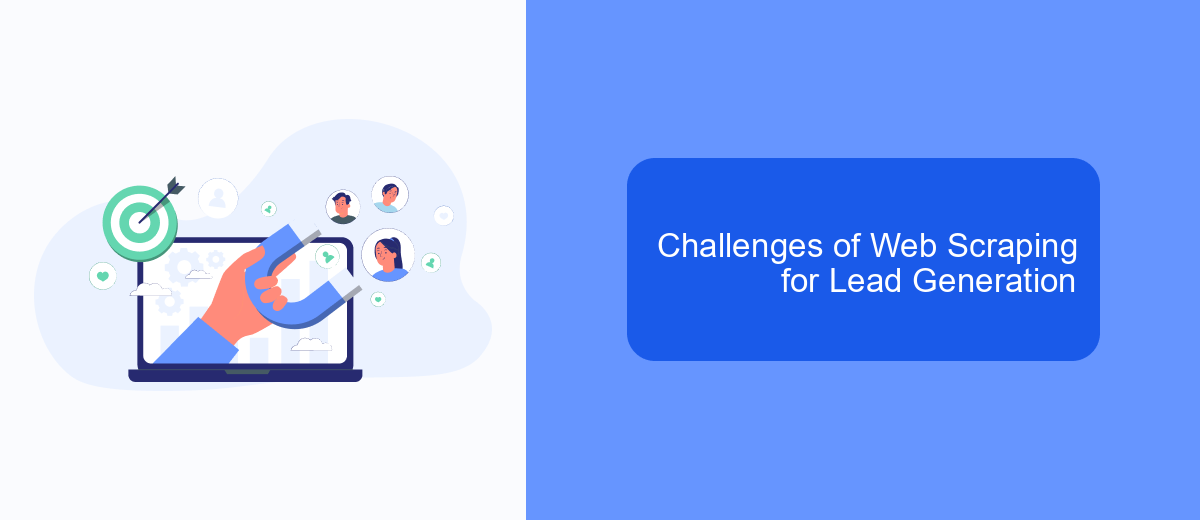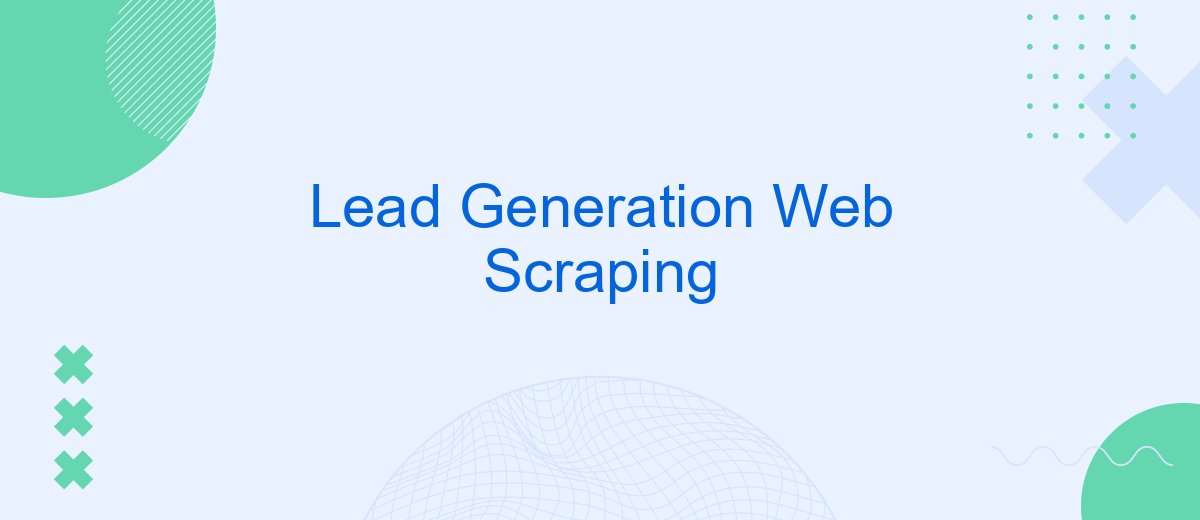Lead generation is a crucial component for any business aiming to expand its customer base and increase sales. In the digital age, web scraping has emerged as a powerful tool to automate and streamline the process of gathering potential leads. This article explores the benefits, methodologies, and ethical considerations of using web scraping for effective lead generation.
Lead Generation Web Scraping
Lead generation web scraping is a powerful technique for businesses looking to gather potential customer information from various online sources. By automating the data collection process, companies can efficiently compile leads without the need for manual input, saving time and resources.
- Automated data collection
- Extraction from multiple sources
- Real-time updates
- Customizable scraping parameters
Integrating web scraping tools with lead management systems can further streamline the process. Services like SaveMyLeads offer seamless integration options, allowing businesses to automatically transfer scraped data into their CRM or email marketing platforms. This ensures that the leads are not only gathered efficiently but also managed and utilized effectively, enhancing overall marketing efforts.
Benefits of Web Scraping for Lead Generation

Web scraping offers significant benefits for lead generation by automating the extraction of valuable data from various online sources. This technique allows businesses to gather extensive information about potential leads, such as contact details, company profiles, and social media activities, with minimal manual effort. By leveraging web scraping, companies can quickly compile comprehensive lead lists, enabling more targeted marketing campaigns and personalized outreach strategies.
Moreover, integrating web scraping tools with lead management platforms can further streamline the process. Services like SaveMyLeads facilitate seamless data transfer between scraped data and CRM systems, ensuring that the collected information is organized and readily accessible. This integration not only saves time but also enhances data accuracy, allowing for more efficient follow-up and nurturing of leads. Ultimately, web scraping empowers businesses to optimize their lead generation efforts, driving higher conversion rates and fostering growth.
Tools for Lead Generation Web Scraping

Lead generation web scraping can be a powerful tool for businesses looking to gather potential customer information from various online sources. To effectively perform web scraping for lead generation, several tools and services can be utilized to streamline the process and ensure the accuracy of the collected data.
- Beautiful Soup: A Python library for parsing HTML and XML documents, making it easy to extract data from web pages.
- Scrapy: An open-source web crawling framework for Python, designed to extract data from websites and process it as per user requirements.
- SaveMyLeads: A service that automates the integration of web scraping tools with CRM systems, ensuring seamless data transfer and management.
- Octoparse: A visual web scraping tool that allows users to extract data without coding, making it accessible to non-programmers.
- ParseHub: A web scraping tool that uses machine learning to transform web data into structured data, suitable for lead generation.
By leveraging these tools, businesses can efficiently gather and manage leads from various online sources. Integrating these tools with services like SaveMyLeads can further enhance the process by automating data transfer to CRM systems, ensuring that leads are promptly and accurately recorded for follow-up and nurturing.
Challenges of Web Scraping for Lead Generation

Web scraping for lead generation presents several challenges that can complicate the process of gathering valuable data. One of the primary difficulties is the legal and ethical considerations involved in scraping websites, as not all sites permit this activity and may have protective measures in place.
Another significant issue is the dynamic nature of websites. Frequent updates and changes in website structures can break scraping scripts, requiring constant maintenance and adjustments. This can be both time-consuming and resource-intensive.
- Legal and ethical constraints
- Dynamic website structures
- IP blocking and rate limiting
- Data quality and accuracy
To reduce the risk of getting blocked, many businesses use a proxy server when scraping. A proxy server routes your web scraping requests through different IP addresses, which helps distribute traffic and mimic organic user behavior.
Best Practices for Lead Generation Web Scraping
When engaging in lead generation web scraping, it is crucial to adhere to best practices to ensure ethical and efficient data collection. Start by respecting the terms of service of the websites you scrape and avoid scraping sites that explicitly prohibit it. Use proper headers and mimic human behavior to prevent getting blocked. Implement rate limiting to avoid overwhelming the server and use proxies to distribute requests and reduce the risk of IP bans.
To streamline the process, consider using tools and services like SaveMyLeads, which can automate the integration of scraped data into your CRM or marketing platforms. This ensures that your leads are promptly and accurately captured, reducing manual effort and minimizing errors. Always prioritize data privacy and security, ensuring that the information you collect is stored and handled in compliance with relevant regulations. By following these best practices, you can effectively and ethically gather leads to fuel your business growth.
FAQ
What is lead generation web scraping?
Is web scraping legal for lead generation?
What tools are commonly used for web scraping in lead generation?
How can I automate lead generation web scraping and integrate it with my CRM?
What are the best practices for ethical web scraping in lead generation?
Use the SaveMyLeads service to improve the speed and quality of your Facebook lead processing. You do not need to regularly check the advertising account and download the CSV file. Get leads quickly and in a convenient format. Using the SML online connector, you can set up automatic transfer of leads from Facebook to various services: CRM systems, instant messengers, task managers, email services, etc. Automate the data transfer process, save time and improve customer service.
